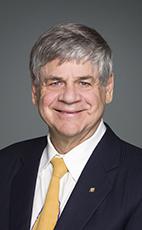Mr. Speaker, since I told the member for Burnaby—Douglas about the statement of the Minister for International Trade, three members of the New Democratic Party have brought up public education. I will repeat that last week the Minister for International Trade, stated categorically when he was talking about the GATT and FTAA positions, that public education was not at risk.
People cannot really complain about not having positions if when there is a position given they complain about that position. People cannot have it both ways. The member for Burnaby—Douglas gave the weak answer that he did not believe this from something that happened quite a while ago, but governments change.
A number of NDP members talk very positively about trade now, which they did not do a few years back. I am not taking issue with that. People change as the world changes. The member's argument was a weak one. I would like to address some of their other admirable points they have on things where the position is not on the table and things might be in jeopardy, but it has been made categorically clear that this other one is not the case.
If I heard the point right, it was that we have less disposable income now than we did 20 years ago. Is not at least part of that because of the increased social programs we have now? Health care is much more efficient. More drugs have been invented and we have to pay for them. We have higher levels of international aid than we did 20 years ago. There are a lot more environmental controls than there were. All these have costs, but I think these are all things that the NDP generally agree with. Are they not part of the reason that disposable income is less?

